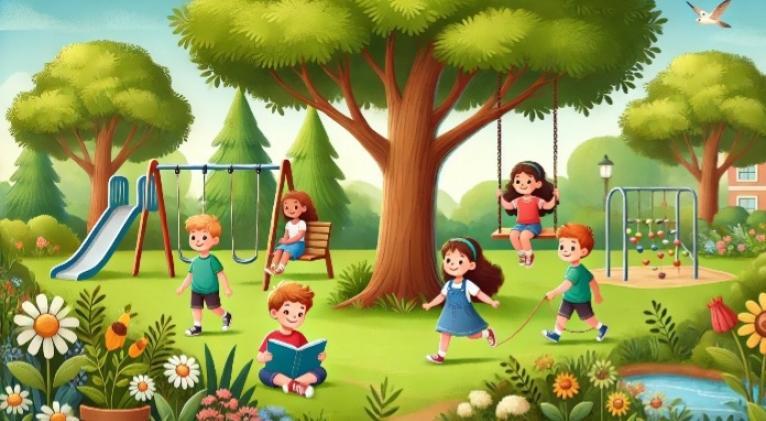Socialization: Key to Childhood Education
especiales

In times of growing technological impact, it’s essential to recognize that socialization with other children is a fundamental pillar of comprehensive education. Isolation in virtual environments, although it offers learning and entertainment opportunities, cannot replace real-life interactions that shape character, empathy, and social skills. Childhood should not develop in a digital bubble, but in a space where coexistence with others strengthens emotional and intellectual growth.
Group play is one of the first experiences in which children learn to share, take turns, and resolve conflicts. These dynamics not only allow them to have fun but also teach them essential values for life in society. Healthy competition, cooperation, and creativity emerge naturally when children interact in traditional games, sports, and outdoor activities.
Furthermore, the face-to-face exchange of ideas is a vital exercise for the development of critical thinking. Face-to-face conversation, respectful debate, and exposure to different points of view foster analytical skills that are difficult to achieve in fragmented digital communication. Schools, parks, community spaces, and extracurricular activities should be promoted as prime settings for this type of interaction.
Outdoor physical activity is not only key to health but also to psychological and emotional well-being. In a world where childhood sedentary lifestyles have become a growing problem, encouraging exploration of the environment, sports, and play in open spaces is essential. Nature also offers an inexhaustible source of stimuli that promote sensory and cognitive development.
Artistic activities, for their part, provide a unique channel for expression and socialization. Music, theater, dance, and the visual arts allow children to share experiences, work as a team, and develop their aesthetic sensitivity. Arts education, far from being a secondary complement, should be actively integrated into children's education as a way to strengthen their identity and communication skills.
This is not about banning the use of technology or denying its benefits. The key is to balance its presence in children's lives and adapt it to their needs based on their age. Responsible and supervised digital consumption can be enriching, as long as it doesn't displace necessary childhood experiences. The challenge for families and institutions is to find the right balance between the virtual world and the real world.
Raising citizens committed to the development of society and with a critical vocation requires educational frameworks that promote interaction, respectful debate, and the consolidation of values. Coexistence from an early age allows children to understand the importance of respect, solidarity, and active participation in their environment. Without these elements, there’s a risk of developing isolated individuals, less empathetic, and less able to face collective challenges.
Ensuring that children grow up in an environment of active socialization is a shared responsibility between the family, the school, and the community. It's not just about facilitating moments of play or recreation, but about understanding that human interaction is the foundation for a more balanced, fair, and consistent society. Investing in children's socialization is investing in the future.
Translated by Amilkal Labañino / CubaSí Translation Staff














Add new comment